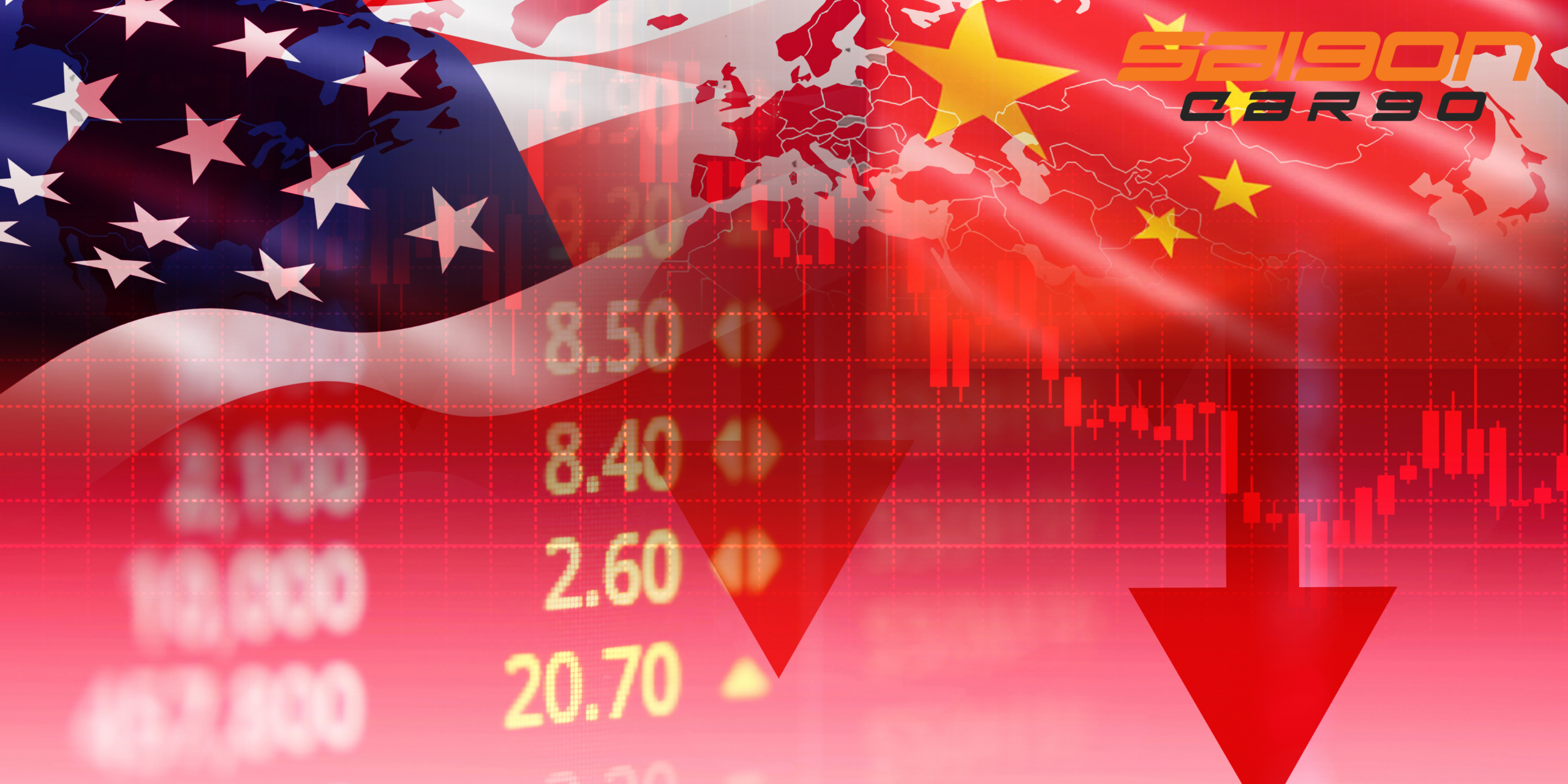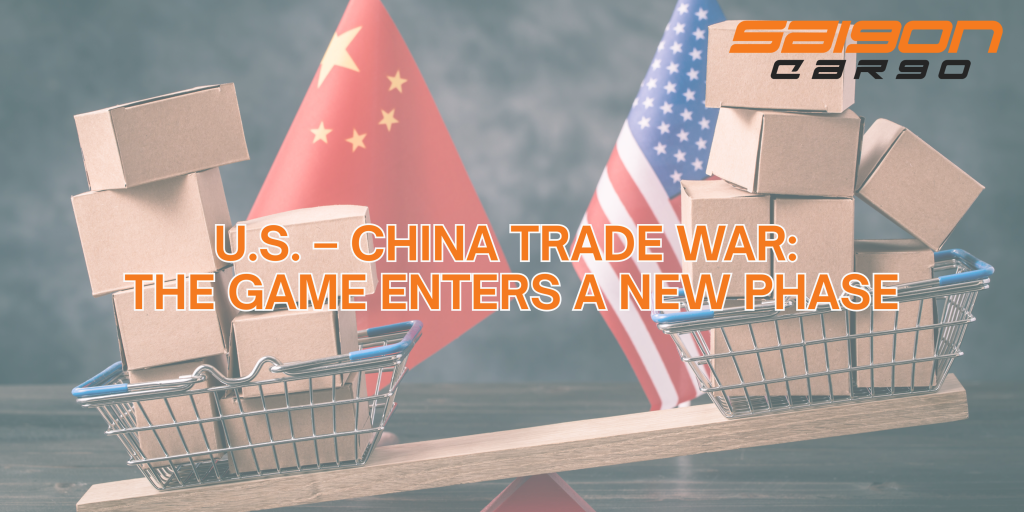U.S. – CHINA TRADE WAR: THE GAME ENTERS A NEW PHASE
The U.S. has halted exports of aviation and semiconductor technology to China, marking a significant escalation in the ongoing trade war between the two nations. Nearly a month after the U.S. and China eased tensions with a temporary tariff reduction agreement, the “honeymoon” has abruptly ended. Both sides have resumed escalating non-tariff sanctions, pushing the world’s two largest economies closer to a new “supply chain war.”
Shift in Battleground: From Tariffs to High Technology
The new phase of the trade war has shifted the battleground from tariffs to rare earth elements and high technology. This move is intensifying the competition as both Washington and Beijing seek to assert power by controlling critical links in the global economy.
U.S. Actions:
- Aviation Technology: U.S. President Donald Trump has suspended exports of engines and control systems to China’s state-owned COMAC, which are crucial for the production of the C919 aircraft—a flagship model of China’s domestic aviation ambitions.
- Semiconductor Technology: The U.S. has halted exports of chip design software from Cadence, Synopsys, and Siemens to Chinese partners. These three companies currently provide over 70% of semiconductor design tools in China. Without this software, the development and testing of next-generation chips will be nearly impossible.
China’s Countermove: Rare Earth Export Ban
In retaliation, Beijing has deployed one of its sharpest tools—rare earth elements. China’s rare earth export ban is clearly impacting its own supply chains, especially in semiconductors and aircraft components. These export restrictions, along with other non-tariff barriers such as visa limitations for students, are part of a broader strategy to restrain each other’s strategic capabilities.
Consequences of China’s Rare Earth Export Ban:
- Impact on U.S. Supply Chain: Currently, 70% of the rare earths used in U.S. high-tech manufacturing and industrial goods come from China. The U.S. rare earth supply chain is now more unstable than ever.
- Defense Technologies: China’s export controls mainly target heavy rare earth elements, which are critical to U.S. defense technologies. For example, the F-35 fighter jet requires around 400 kg of rare earths for jet engines, avionics, munitions, and radar systems. The Virginia-class submarine uses up to 4,200 kg of rare earths in defense technologies. Notably, 78% of U.S. military weapons systems rely on rare earth materials imported from China.
Expert Opinions:
- Dr. Gracelin Baskaran, Director of the Critical Minerals Security Program at CSIS: “The U.S. has no domestic processing capability for heavy rare earths. It is completely dependent on China. Sixteen major U.S. aerospace and defense firms would be unable to manufacture weapons without these materials.”
- Dr. Hoo Chiew-Ping from the East Asia International Relations Caucus (Malaysia): “If China fully enforces its rare earth and magnet export ban, the U.S. will need to turn to allies like Australia or Japan. While their reserves are not huge, they could help meet short-term defense and aerospace needs.”
Global Auto Industry Warns of Production Halts
The global auto industry has issued strong warnings to governments about potential production halts. Companies like General Motors, Toyota, Volkswagen, and Hyundai have highlighted that essential components such as gearboxes, motors, and sensors cannot be produced without rare earth materials.
Dr. Hoo further commented: “China’s ban is triggering a race among major powers to secure alternative rare earth supply chains—possibly even from deep-sea mining. However, in the short term, dependency on China remains almost unavoidable.”
Global Businesses Restructure Supply Chains
A recent HSBC survey of over 5,700 companies across 13 major markets reveals that two-thirds have experienced cost increases due to trade disruptions. In response, many are actively restructuring their supply chains to enhance resilience and reduce reliance on vulnerable links.
Notable Moves:
- Europe: Itelyum has launched the continent’s first industrial-scale facility to recycle critical rare earths from used permanent magnets. Backed by over €3 million in EU funding, this plant aims to reduce the bloc’s dependence on external sources—primarily China—for key raw materials.
- Francesco Gallo, Chief Operating Officer of Itelyum: “Europe lacks sufficient rare earth supply for essential equipment. Every country wants these materials—not only for green technologies but also for defense.”
- AI and Advanced Robotics: The EU is embracing circular economy strategies, powered by AI and advanced robotics. “AI helps us map all electronic waste,” Gallo added. “It is essential for identifying, sorting, and disassembling waste, which we further process using robots where possible.”
Business Adjustments:

- Nearshoring and Reshoring: Companies are increasingly adjusting their supply chains to align with market-specific conditions. HSBC reports a growing trend in nearshoring (relocating production closer to consumer markets) and reshoring (bringing production back home).
- Surajit Rakshit, Country Head of Global Trade Solutions at HSBC Vietnam: “We are seeing a surge in nearshoring strategies, particularly in globally connected sectors such as technology, media, and telecommunications. About 87% of clients in these industries have implemented or plan to implement nearshoring.”
Recent Developments and Future Outlook
Amid mounting global trade uncertainties, supply chain restructuring has become a strategic imperative for businesses and economies alike. Rather than solely focusing on cost efficiency, companies are now prioritizing a balance between operational safety and competitiveness.
Recent Update: President Donald Trump announced that China has temporarily resumed rare earth exports to the U.S. CNBC reported that three major automakers have received provisional licenses to purchase these critical materials. Further negotiations are set to resume on Monday, June 9. However, experts warn that the battle for control over mineral and high-tech supply chains is far from over, especially with tariff disputes still unresolved.
If you have any further questions or need more detailed information, please feel free to contact us.
Dịch vụ booking tải hàng không từ Hồ Chí Minh đi Taguig
Dịch vụ chuyển phát nhanh đi Hongkong giá rẻ

